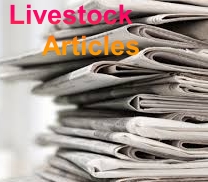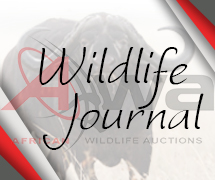Consumers of Goat Meat
Goat meat is very popular with Hindu and Indian consumers.
A French study ‘Situation, changes and future of the goat industry around the world’ (October 2018) has found that most goat meat is consumed directly by the producer or locally. Only about 0.5% of goat meat is officially traded internationally. This echoes a similar situation in South Africa.
Market Research on Goat Meat
Market research on goat meat consumption by the Kalahari Kid Corporation has found that the lower income consumer groups often cannot normally afford to purchase a whole carcass. It was suggested that this market can be grown by offering lower-priced cuts of meat, such as neck and breast, flap packed in a boxed format for selling into the informal sector. Offal is largely consumed in the traditional sector but can often be in short supply during the winter months.
According to a study ‘A Profile of the South African Goat Market Value Chain’ (2017) the Department of Agriculture, Forestry and Fisheries have found that traditionally the largest consumers of chevon in South Africa is the lower income groups. Goat meat is often used by these groups as a daily source of protein and considered essential for bridal ceremonies and funerals.
Goat Meat Consumers
Goat is also widely consumed by Muslim and Hindu consumers. India has the highest number of goats in the world (35%) and 95% of goats slaughtered in India are consumed there. So goat meat plays a huge role in the diet of Hindu customers.
In South Africa, goat meat can be found in certain Muslim, Portuguese and Italian butcheries and is also popular within the expat communities of Kenyans, Ghanaians, Nigerians, Ugandans and some households in the Northern Suburbs of Sandton, says the Kalahari Kid Corporation.
Consumer ignorance and negative perception about the flavour of goat meat limits the market in certain population and income groups.
Goat Meat Consumption in KwaZulu-Natal
KwaZulu-Natal province is where most goats are consumed with the mbuzi goat the most popular indigenous goat.
The KwaZulu-Natal province is the largest goat market in South Africa. Goats are used by Muslims celebrating Eid, Hindu festivals and expat communities of Bangladesh, Pakistan, Ethiopia, Somalia, Ruanda, Congo, Cameroon and Nigeria. Yet, the most important driving force of the KZN goat industry is the use of goats by the Zulu nation. Goats are used in their ancestral worship practices as well as in their traditional judicial system and economy.
A survey by Hilton Sanders of Indigenous Veld Goats of South Africa (IVG-SA) has found that in KwaZulu-Natal (KZN) over 850 000 goats were slaughtered in 2013. (Statistics compiled from discussions with the province’s Department of Agriculture, House of Traditional Leaders, commercial goat farmers and traders are released every five years, but were not available for 2018).
The 2013 figures include 400 000 goats slaughtered to celebrate births, 214 000 for funerals and 42 000 for customary weddings. These figures are expected to double over the next five years with over 1,7 million goats required for the KZN traditional market in 2018 and beyond.
Goats in KZN are mostly of the pure Mbuzi (indigenous goat ecotype) as well as Mbuzi crosses.
KZN cannot supply the province’s demand and live goats are imported from other provinces as well as Namibia. In this market, goats are sold on height rather than weight, so an animal of 22 kg and 50 cm high (at shoulder height) will fetch a higher price than an animal of 25 kg at 45 cm height. Goats sold in KZN also demand a higher price than when sold anywhere else in South Africa.
Most goats are sold directly to end users (through traders, at pension payouts or taxi ranks) and only 5% are sold via auctions.
By Marinda Louw








